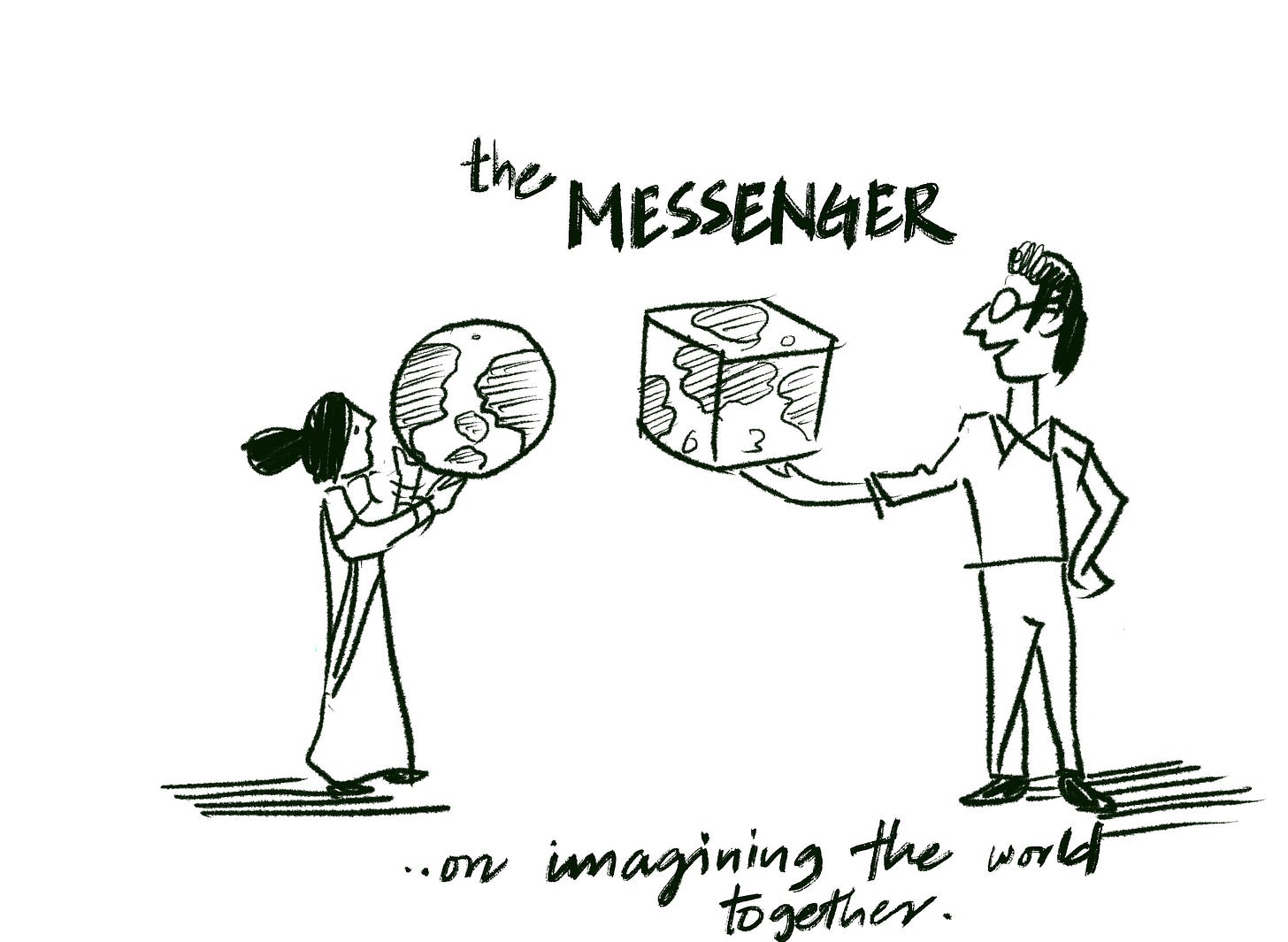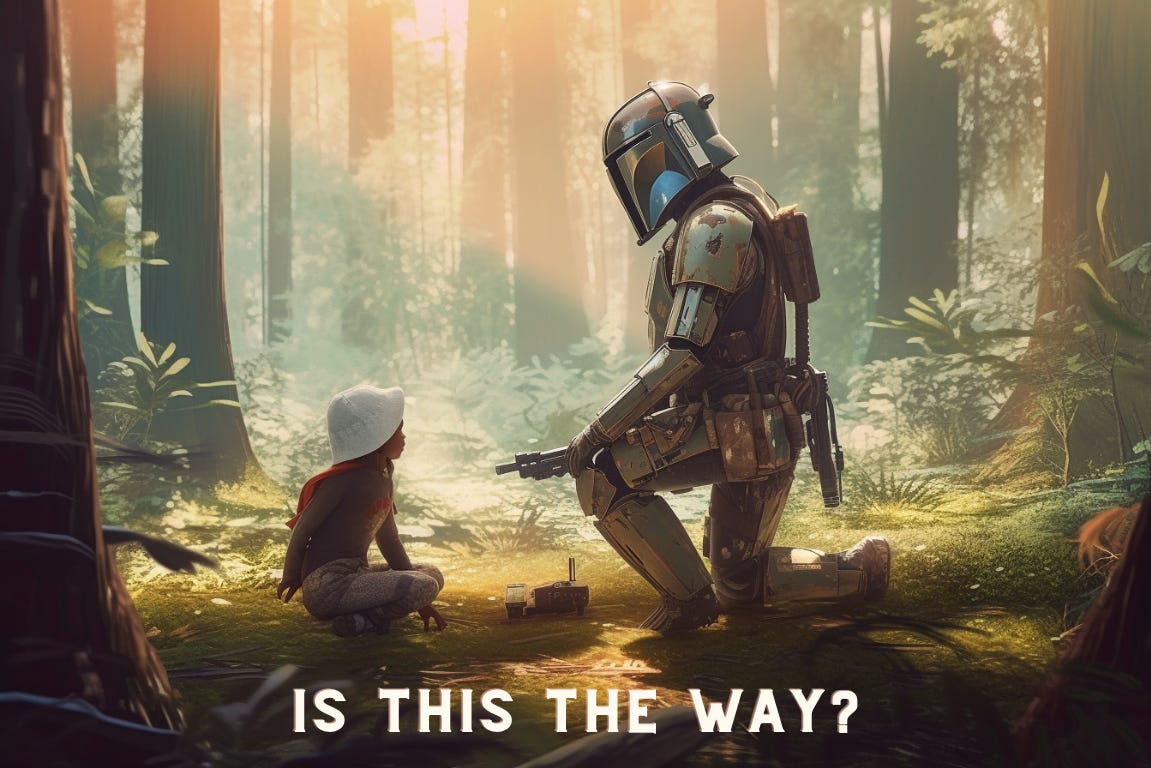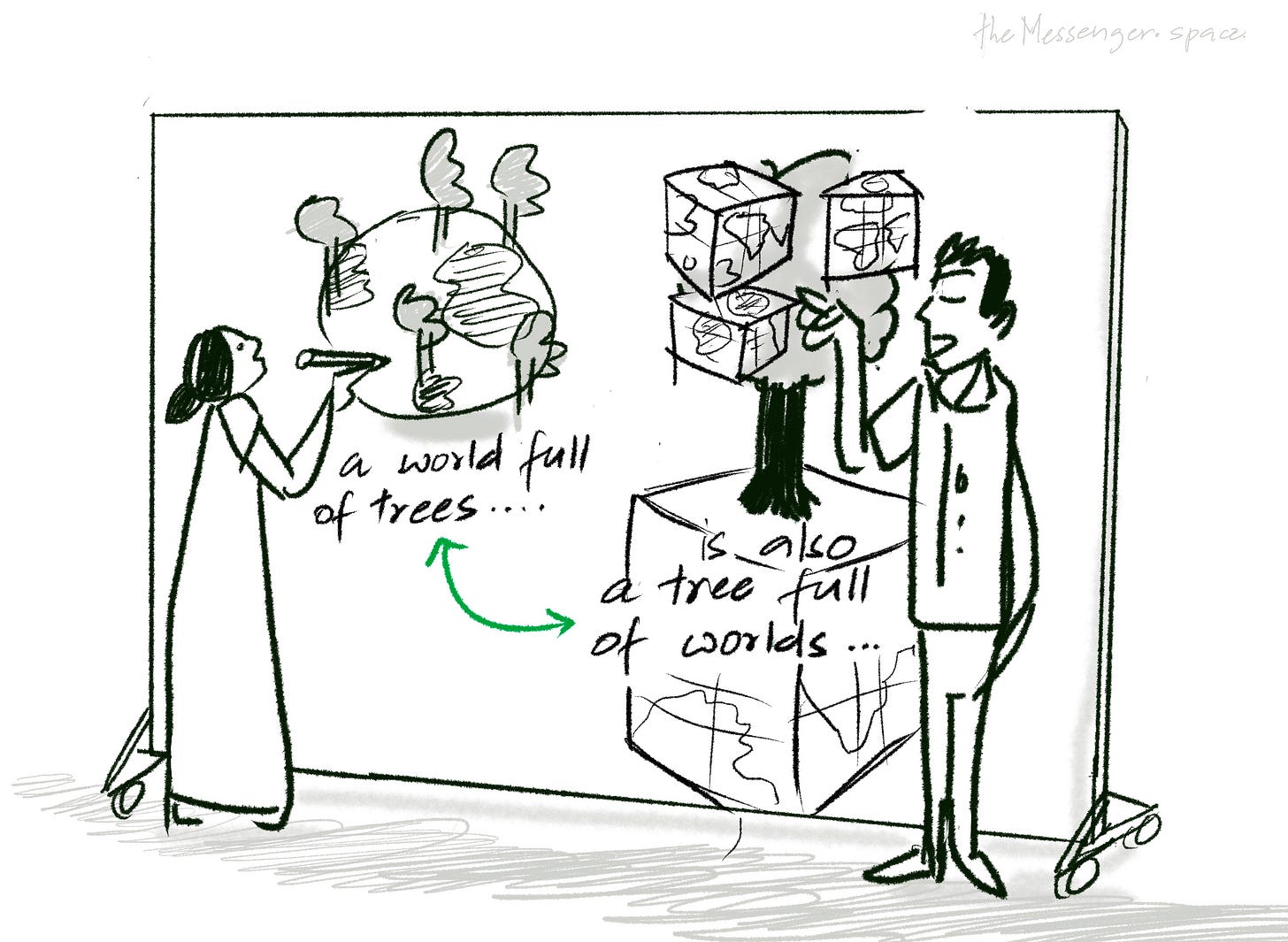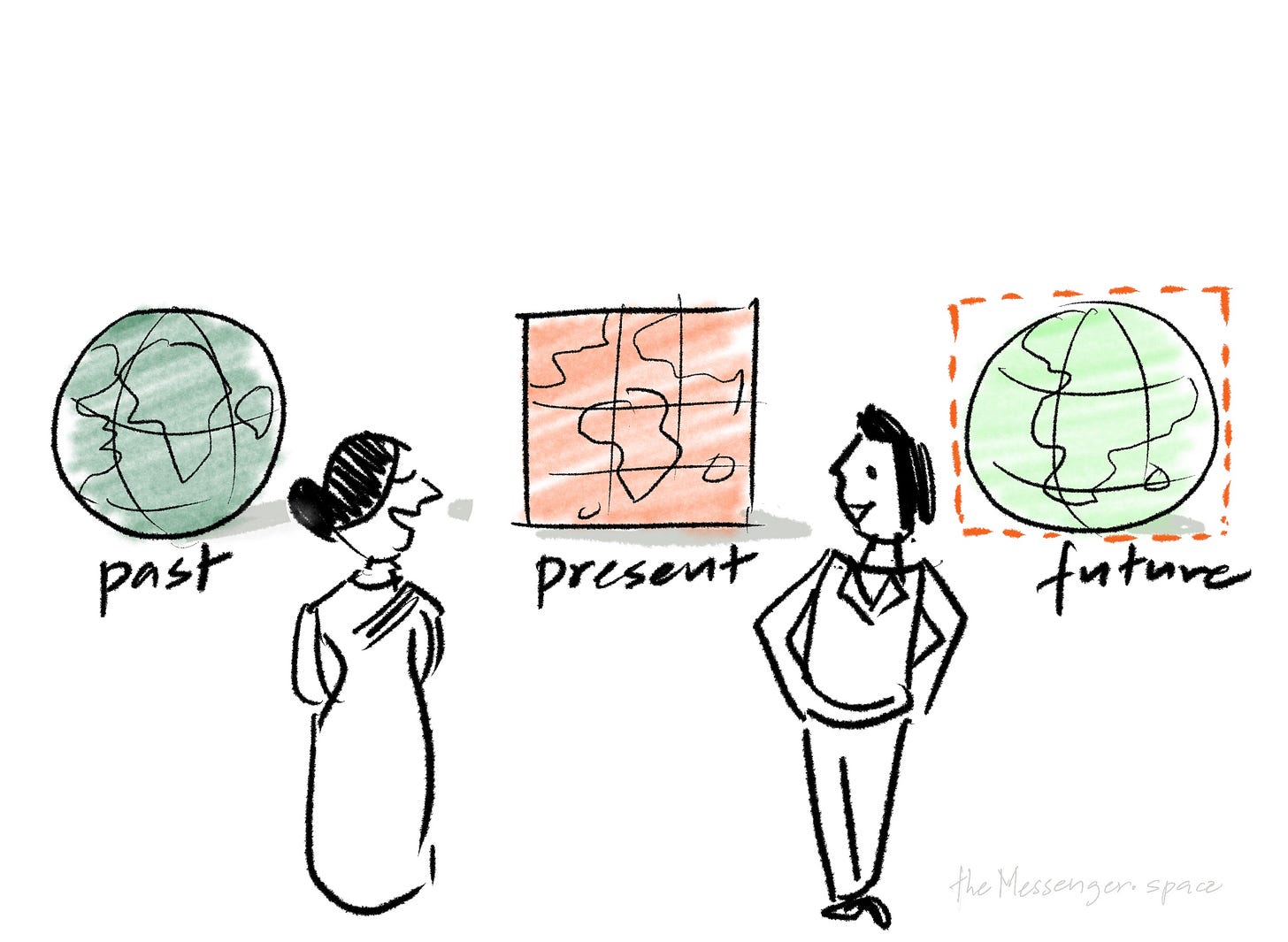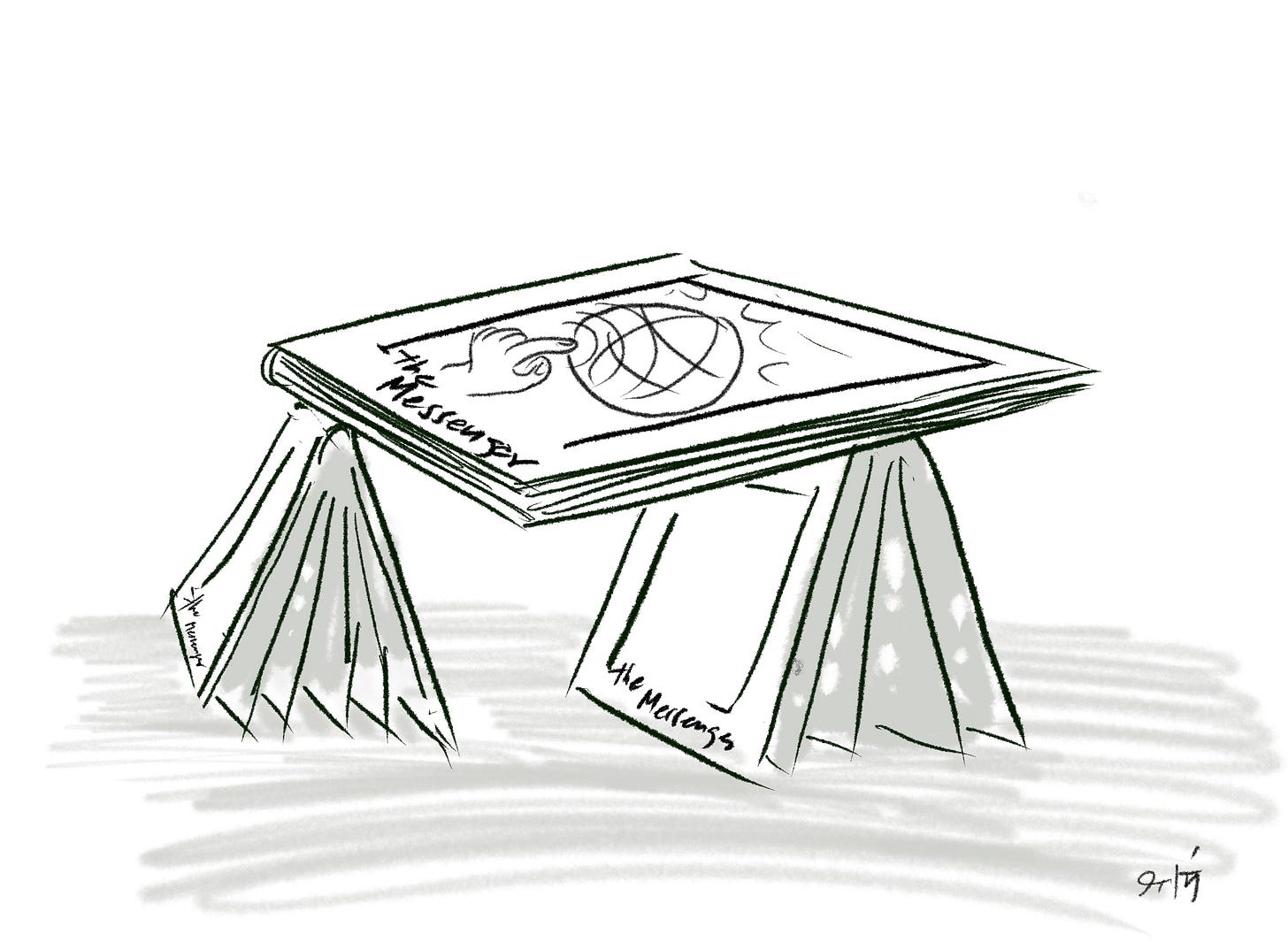We are going to take a couple of weeks off and come back with a new and improved Messenger after the break.
Back to our regular programming. The famous opening lines by ChatGPT:
When I hear the phrase "worlding and worldling," a few associations come to mind:
Existential philosophy: The concept of "worlding" can be related to existentialist thought, particularly Martin Heidegger's idea of "being-in-the-world." It refers to the process by which individuals interact and engage with the world around them, shaping their understanding and experience of reality. A "worldling" might be seen as someone actively involved in this process, navigating their existence and contributing to the construction of their own world.
Cultural anthropology: In the field of anthropology, "worlding" can be connected to the study of how different societies and cultures construct and perceive their own worlds, often through language, symbols, rituals, and social practices. It emphasizes the diversity of human experiences and the subjective nature of reality. A "worldling" could be interpreted as an individual situated within a particular cultural context, influenced by its customs and beliefs.
Literary and poetic imagery: The terms "worlding" and "worldling" can evoke vivid imagery and metaphorical interpretations within literature and poetry. "Worlding" might be associated with the act of creating or crafting a world through words and imagination, while a "worldling" could be a character or persona deeply immersed in a fictional or poetic realm.
In our Mindcraft lab, our work has often gone into thinking of ways of representing the world, informed by data, opinions, thoughts, conflicts, gender, climate, citizenship and ecosystems such that we can create ways be able to put all these complex interactions together and create a space for understanding, empathy and synthesizing some directions for a flourishing future of the planet. Worlding and Worldling play at the core of this sentiment.
We broadly categorize three ways in which we see this dialectic developing.
Thinking through writing and drawing and developing narratives that speak, discuss and try to unravel the conceptual underpinning of our spaces. The Messenger and our currently developing open source knowledge architecture represents those factions of narrative and ‘worldbuilding’.
Sensome, Urban Labs and Citizen’s Jury, where in our field work we are looking at placemaking and creating community experiences to imagine, feel and decide together.
Virtual Worlds, where we are developing AR, XR apps to create public archives of our collective imagination, aiming on a greater reach and impact.
Is this the way?
Imagination of the future, evaluation of that imagination and taking steps to reach that favourable vision is a core fundamental process that has been practiced forever in various situations and environments. In today’s situation this is aided by leaps in technological and intellectual sophistication to enable spaces for envisioning. Visioning remains a primary process by the way which we can see the world together.
What is it about building worlds, that enables us to see the world in a different way?
“Make the world work, for 100% of humanity, in the shortest possible time, through spontaneous cooperation, without ecological offense or the disadvantage of anyone.”
- Buckminster FullerLets us take an example, if we were to collectively imagine how the future will be in 10 years, if carbon becomes the primary store of value? How should we go about it? For starters it would be great if we work through different perspectives from people and imagine how these new worlds might function and what should we keep and what should we let go and how will we trade using carbon? In another world if we were to imagine an impending climate catastrophe, how must we be prepared to react to it? Can there be a public archive of these imaginations, solutions, hacks that people come up with?
Worldbuilding in the light of inclusive futures requires us to approach it with humility and a willingness to explore the unknown. By embracing dialogue, considering interrelationships, and questioning our own solutions, we can shape a more inclusive and sustainable world. Through this process, we discover the transformative power of alternative realities and the importance of diverse perspectives in creating a future that benefits all.
The enabling of these spaces and worlds for imaginations and facilitating an experience through these situations are some of our current preoccupations. Maybe best expressed by the machine in progress:
In the realm of worlding, where dreams take flight, A worldling emerges, bathed in ethereal light. They dance amidst shadows and whispering trees, Weaving tales of wonder with gentle, poetic ease.
With ink-stained fingers and a soul untamed, They sculpt visions of beauty, leaving none unnamed. Their words, like starlight, illuminate the unknown, Unveiling realms uncharted, where mysteries are sown.
In the tapestry of existence, they find their place, Exploring landscapes of thought with boundless grace. Their verses paint galaxies, brushstroke by brushstroke, Transforming reality, evoking truths bespoke.
Oh, worlding and worldling, a poetic duet, Muses and scribes, forever entwined, you bet. Through lyric and rhythm, they shape the sublime, Crafting verses that transcend the boundaries of time.
So let the worldling wander, in realms yet unseen, Unleashing the power of words, like a poet's dream. For in their artistry, we find solace and flight, Guided by their whispers, our spirits take flight.





